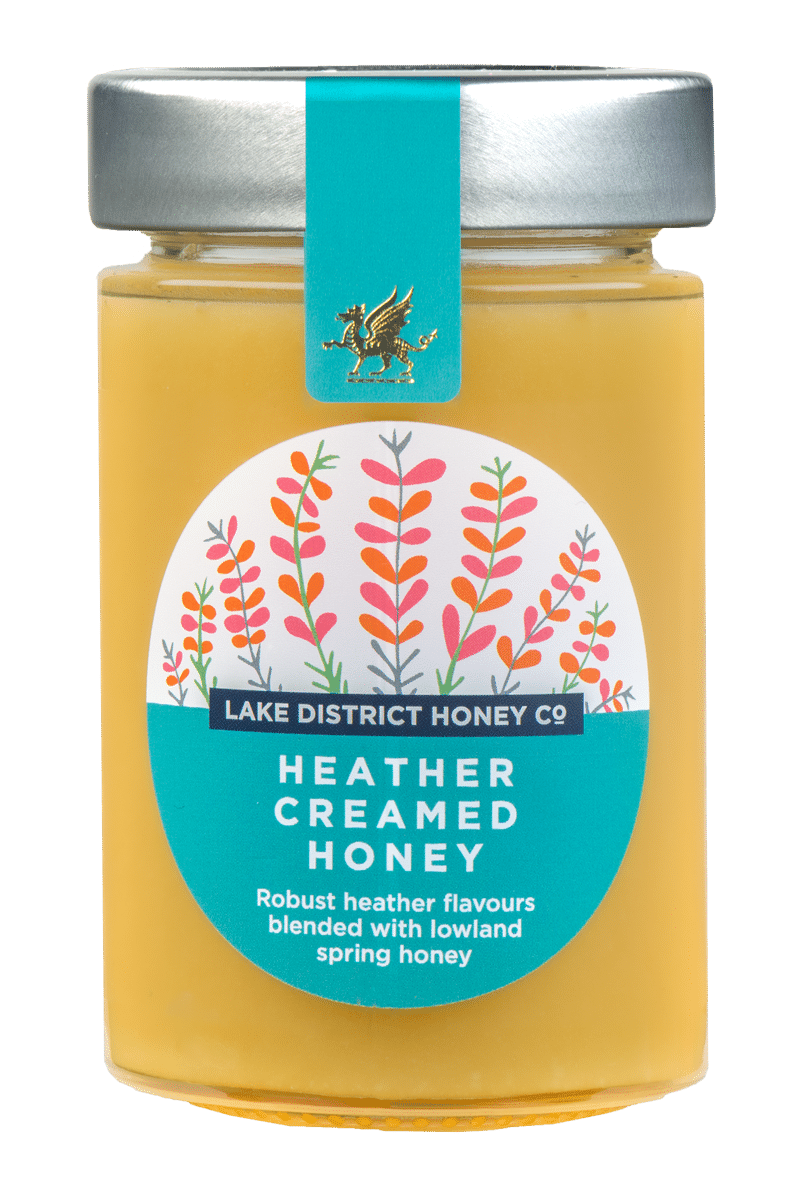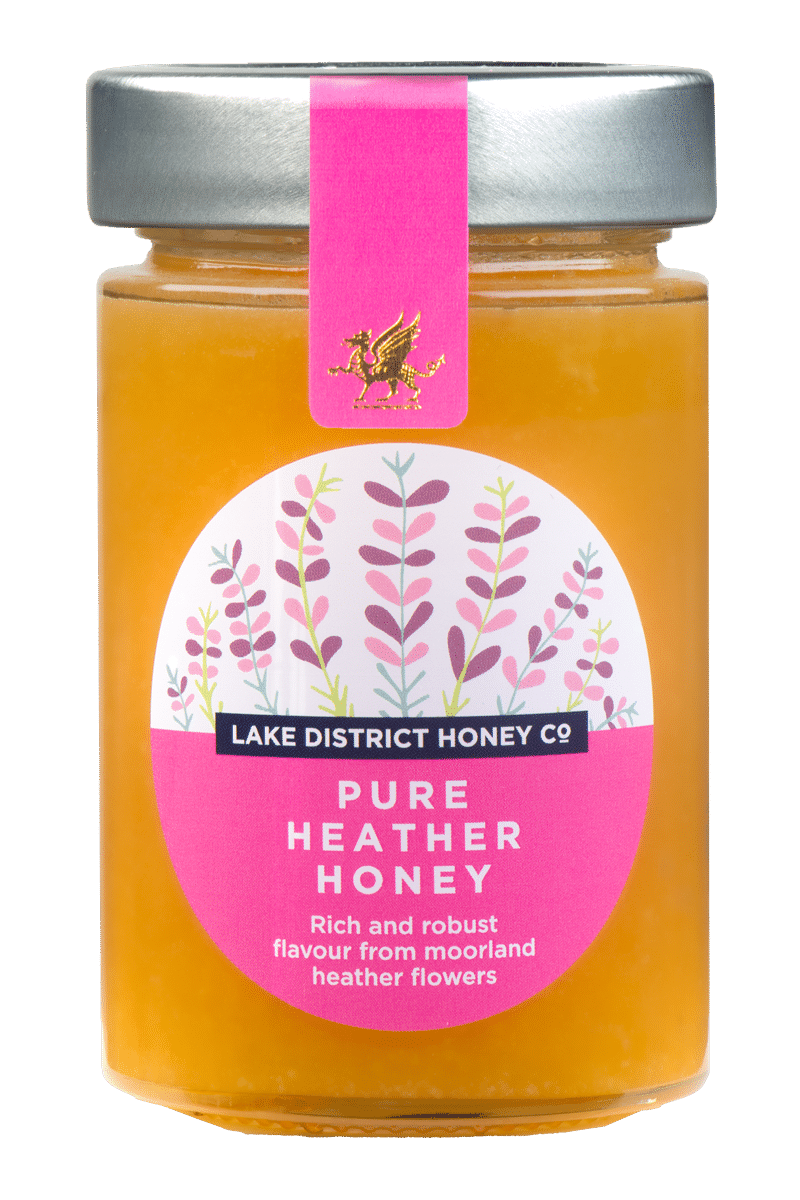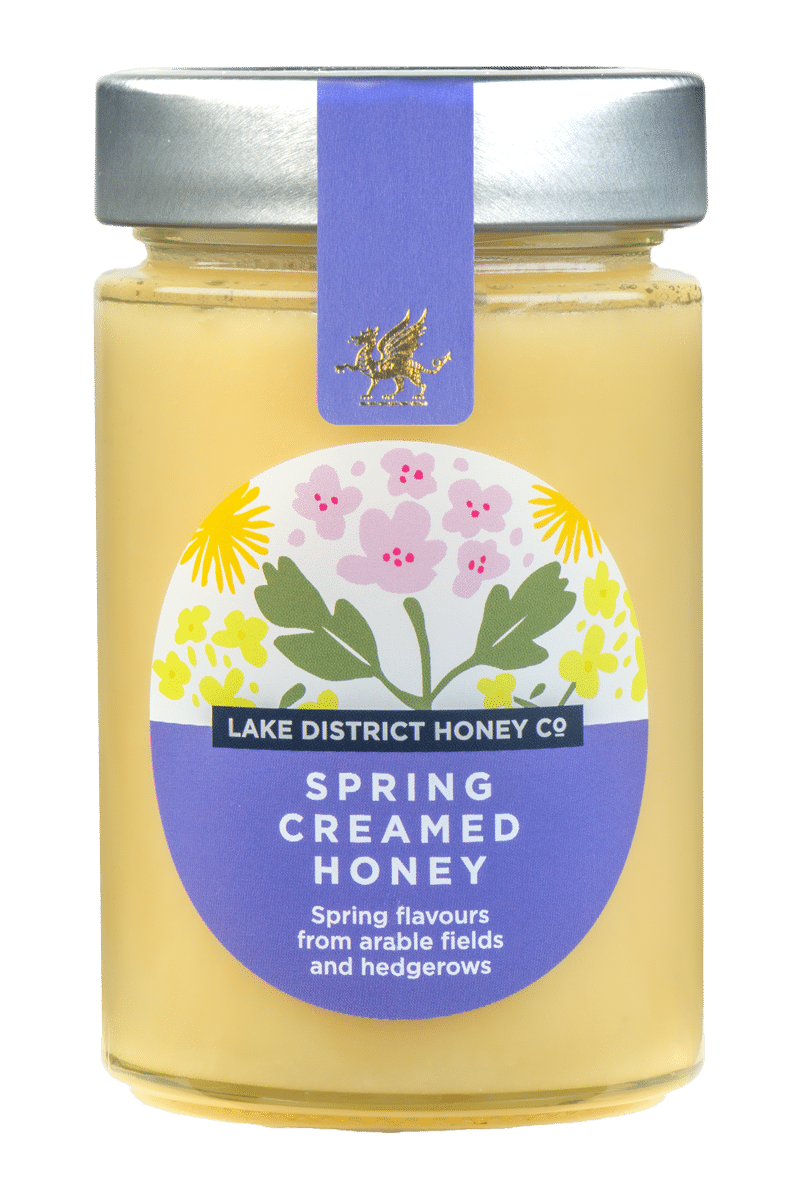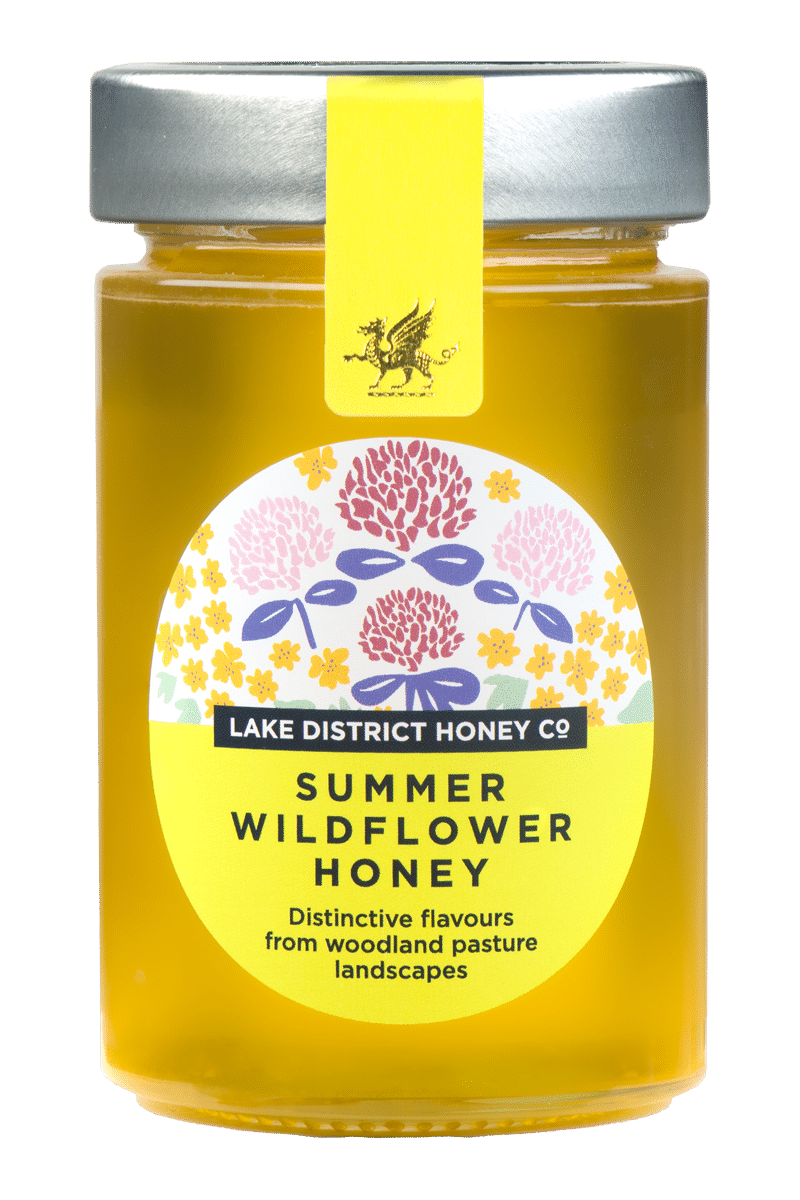Lake District Honey Company
Jim Lowther has combined the delicious taste of honey with conscientious land management through the Lake District Honey Company. Owner of the extensive Lowther Estate – most famous for its spectacular ruins and breath-taking gardens – Jim has been fascinated by bees for many years. In 2015, he began to take a more active interest, becoming a beekeeper and starting to place hives across the estate. He can now boast over 600 hives across the grounds, in landscapes as diverse as wildflower meadows and fellsides.
Flavours of the landscape
With its unique placement stretching over many types of landscape, the Lowther Estate can create a range of honey flavours with varied placement of hives.
In the rolling valleys of the Bampton Valley are swathes of wildflower and grassland meadows. The bees creating honey from these wildlife- and pollen-rich fields have a host of beautiful plants to dip in and out of. The resulting Bampton Valley Wildflower Honey is sweet and floral in flavour.
Reaching higher is Shap Fell Heather Honey, which has a much heavier and smokier flavour thanks to the heady influences of heather that grows on this hill, overlooked by the mighty Lake District mountains.
Those bees that create Lowther Castle Blossom Honey have buzzed and hummed over the clover meadows, orchards, native woodland and vegetable patches that make up some of the Lowther Estate’s gardens. The resulting flavour is a buttery blend of wild and tamed landscapes.
Finally, to the rippling shores of the River Lowther, where bees meander along with the water, tasting willow catkins and wildflowers along the banks. The River Lowther Blended Honey captures this picturesque journey with its citrusy flavour.
Lowther honey for the environment
The Lake District Honey Company was a natural result of Jim Lowther’s love of our stripy flying friends, plus the Lowther Estate’s wider-reaching estate plan. A long-term plan to de-intensify land management and to continue implementing a regenerative agricultural strategy means that the landscape becomes healthier, the bees can thrive, and we can benefit from delicious Lowther honey – and everything else that the bees represent.






